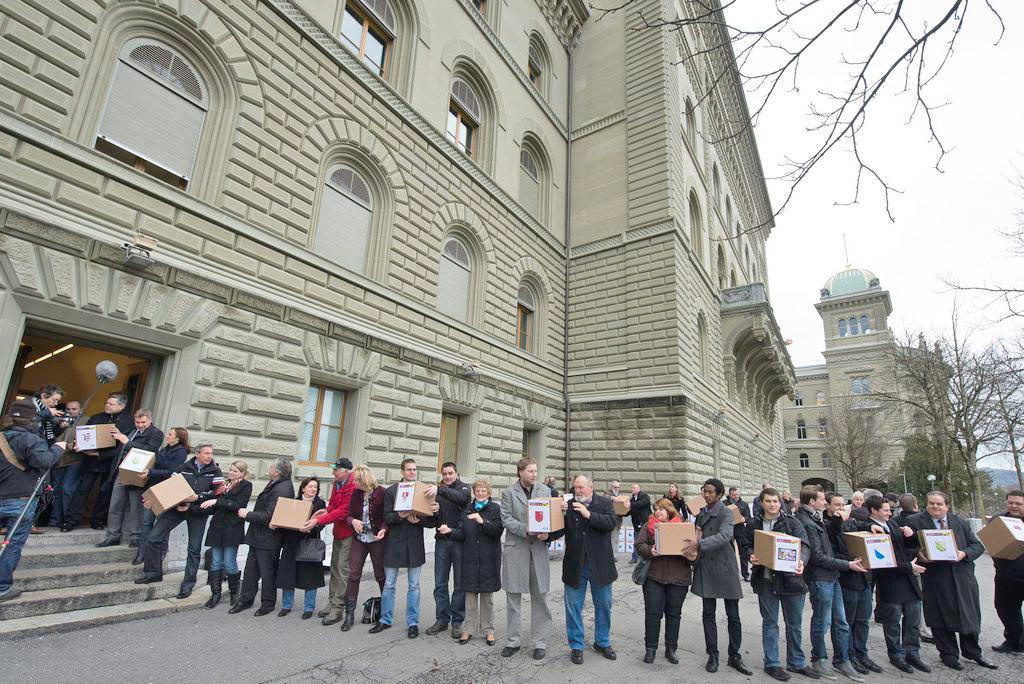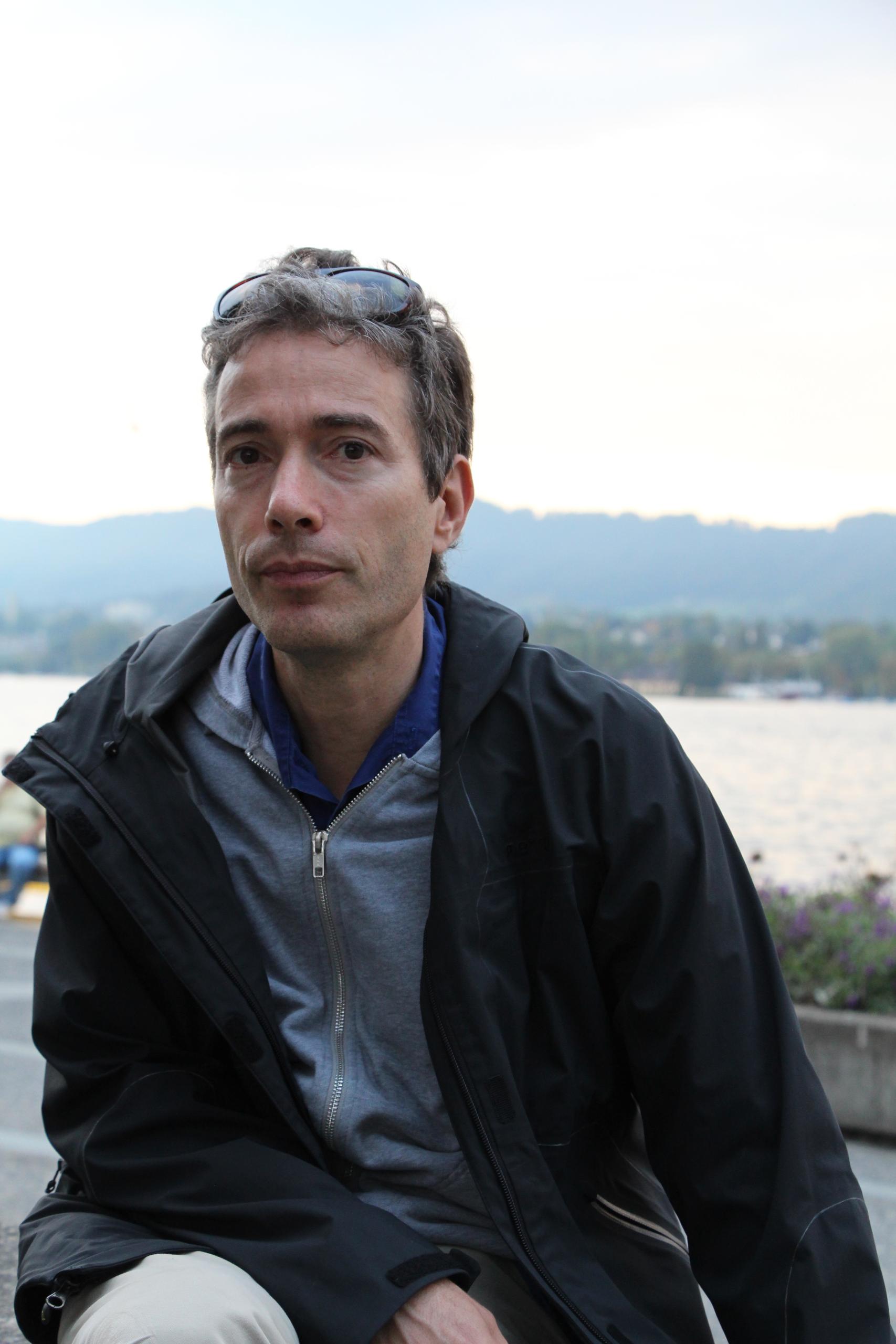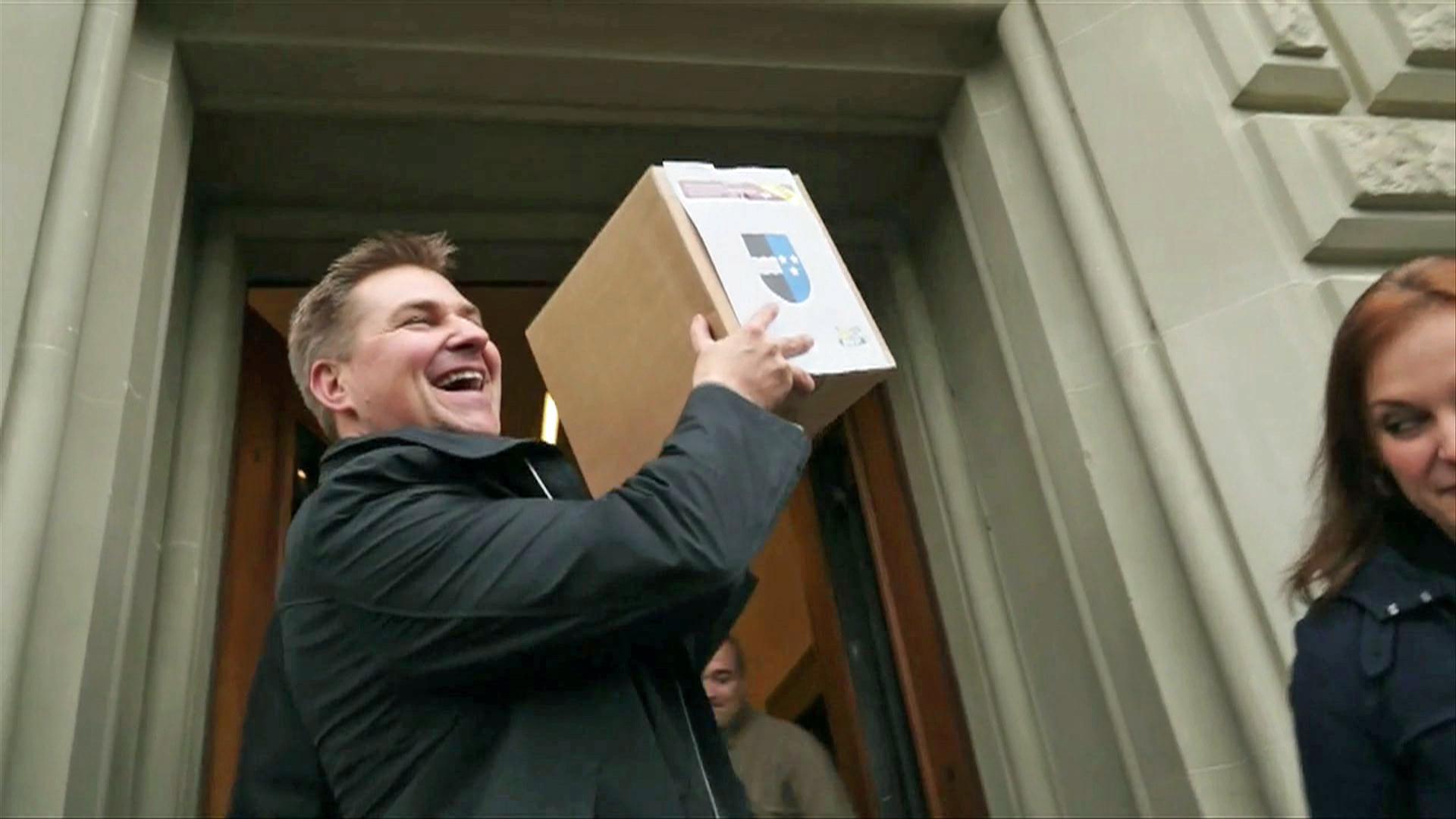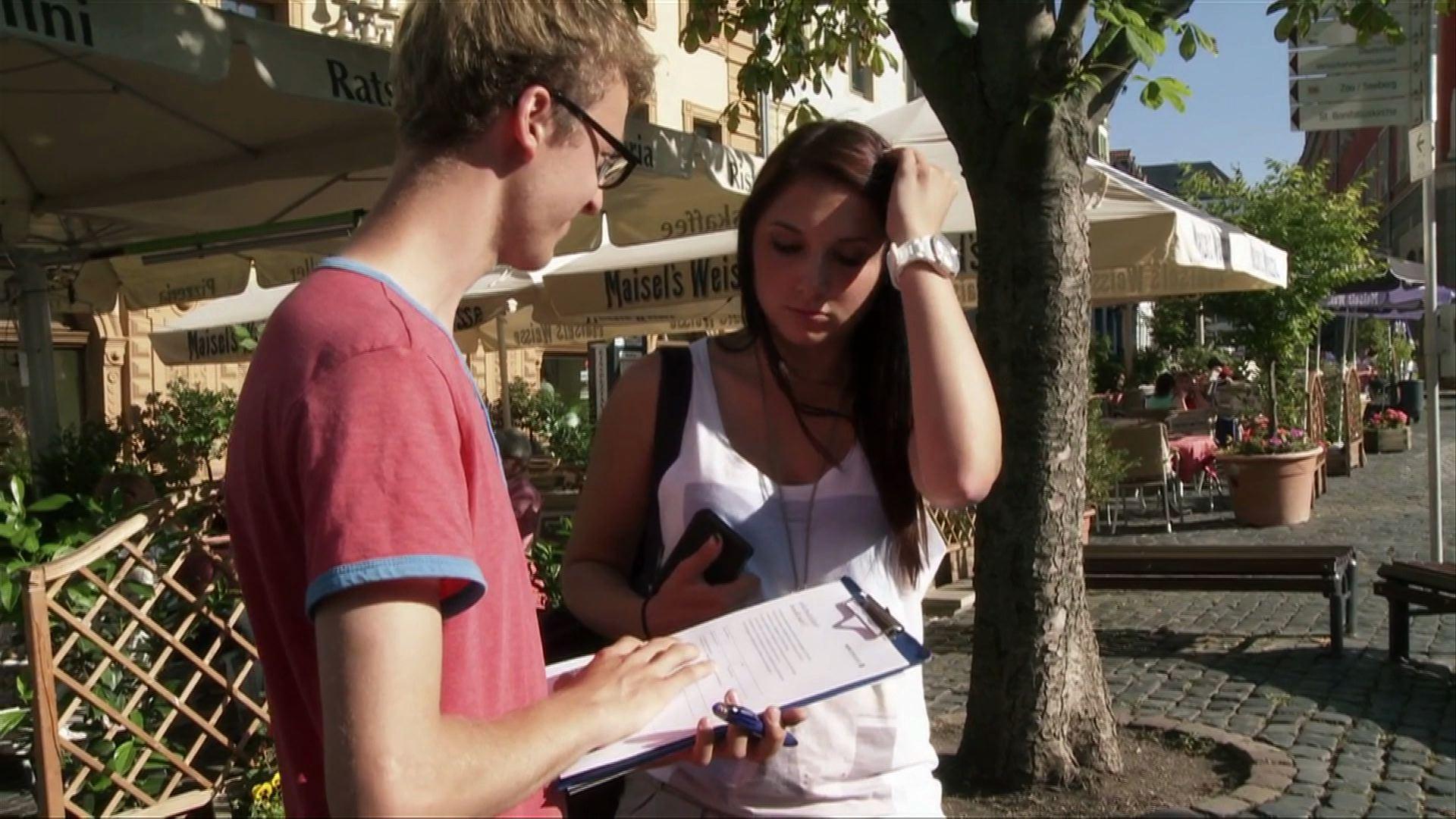When democracy gets going, the going can get tough

Four Sundays a year the Swiss vote on people’s initiatives, with results coming in during the afternoon and broadcast on TV. As Swiss filmmaker Thomas Isler watched the evening news in 2012, he got the feeling “something was wrong”. Cue his latest film.
Isler has worked extensively with film for over a decade, creating video installations, animations, experimental films and documentaries on topics such as Tamil immigration in Switzerland and development aid in Rwanda. His most recent documentary, ‘Die Demokratie ist los!’ (Democracy let loose!) premiered at the 2014 Zurich Film Festival.
swissinfo.ch: How did this film come about?
Thomas Isler: I started to feel that we had come up against the limits of participation.
We had started to discriminate against minorities or bring in laws which go against the principles of our constitution. That was the starting point, the feeling that something was going wrong here in Switzerland.
swissinfo.ch: Did you set out to prove something in your film, or was it more an exploration of the concept of democracy?
T.I.: I had an aim but it changed throughout filming. In the beginning it was more a feeling that the current system had become impossible, and wondering how the film would come about. Now it’s more: OK, we need a framework and a discussion about what a democracy is and when a democracy starts to be the dictatorship of a majority.

swissinfo.ch: This idea crops up throughout the film – what is a democracy? The professor of law, Philippe Mastronardi, who features in the film, said that although a decision taken by the people is final, it is still only a group of people who have voted in this way and not everybody. What conclusions did you come to in the end on this question?
T.I: I’m convinced that democracy and our direct democracy is the best way in which to share power. Somebody needs to have the power in society and here power belongs to the people. But power also always needs a correction, it needs balance.
All power is at risk of going beyond its limits. There is a risk that people could do the wrong things. To stop that, most countries have a constitution where it is strictly clear where the boundaries are on the activities of this part of the power.
Something I figured out during the film is that power through democracy and the people is one organism of the state, not the only organism. So we need this kind of classical triangle of power sharing, checks and balances.
In my film, I follow the deportation of foreign criminals initiative, where non-Swiss citizens who have committed a crime have to automatically leave the country. This ‘automatic’ concept is something very, very strange and dangerous, in the sense that we risk losing the principle of proportionality.
We have that principle in our constitution, so why do we put something in the constitution where people without Swiss passports don’t have these kind of rights? This is something very unjust and that is against the rule of law. The rule of law is the basis of the democratic state. If we lose the rule of law, we lose also our democracy. That is what professor Mastronardi said, and I think it’s right.

More
An initiative to expel foreigners who commit crimes
swissinfo.ch: We hear the rightwing Swiss People’s Party’s strongman, Christoph Blocher, speaking a few times throughout the film, and he is very firm that once the people have voted on an issue, the decision has been taken. How can a vote be reconciled if the people vote in a way that goes against human rights? How can those two opposing positions be made compatible?
T.I: The strange thing with Christoph Blocher is that he believes, I think unfortunately, that the absolute powers belong with the people. This is a very dangerous situation. I think he really hates all judges, the courts, all these corrections of the people’s power. But the question is: why does he hate that? He studied law, so actually he should know how the system of justice works.
Our democracy is where the power belongs to the people and we have human rights, together. Not where these things are set against each other.
One reason why I did this film was to ask, why do we always let the rightwing say what democracy is? They have their own idea and I have another idea.
swissinfo.ch: It’s not just the Swiss People’s Party who start initiatives however. The young socialists, the Social Democrats and other leftwing parties also run initiative campaigns. It’s surely not the case that the Swiss are only letting the rightwing define what democracy is?
T.I.: I think it’s a discussion and also a kind of fight, as to what democracy is. And that is the good side to what is happening in Switzerland.
This problem is not only in Switzerland, if you go outside the country, you will see it too – rightwing politicians see in Switzerland what they could have if they had the direct democracy system. They could make an agenda, which would never be possible in France, Germany or England, that is why they’re so interested in what’s happening in here.
The problem is maybe not the direct democracy, but that we don’t have a clear way to weigh up the problems. In Germany, I was told it would never have been possible to have an initiative against minarets there. The constitutional court would say ‘no’, because it goes against human rights.
They have mechanisms which we don’t have. But we need some, I don’t know which ones, but we need a discussion.

More
Reproducing Swiss democracy abroad
swissinfo.ch: It’s quite common at the moment in other countries, in Britain for example, to cite Switzerland as a prime example of direct democracy. In your film you went to various different other countries. What did you find there about how people view Switzerland?
T.I.: I saw a lot of interest, people asking why they don’t have this in their own country. And I think that’s right. We have something very special. But I also saw other people who recognised the problems we have now in Switzerland, and who wondered if it is maybe better to stay with a system where you have a representative democracy, with parliament in charge.
We have our own tradition, our own history with this system…it would be very different, if in Britain, parliament decided to install direct democracy. It would be different and that’s also OK. We cannot try to push our idea of direct democracy on other people. It has to come out of their own system.
I hope for other countries that the people have more opportunity to participate through referendums and initiatives, but you cannot recreate Switzerland across the whole world. As a point of inspiration, I think it’s very interesting, and also to see what the limits are.

In compliance with the JTI standards
More: SWI swissinfo.ch certified by the Journalism Trust Initiative











You can find an overview of ongoing debates with our journalists here . Please join us!
If you want to start a conversation about a topic raised in this article or want to report factual errors, email us at english@swissinfo.ch.